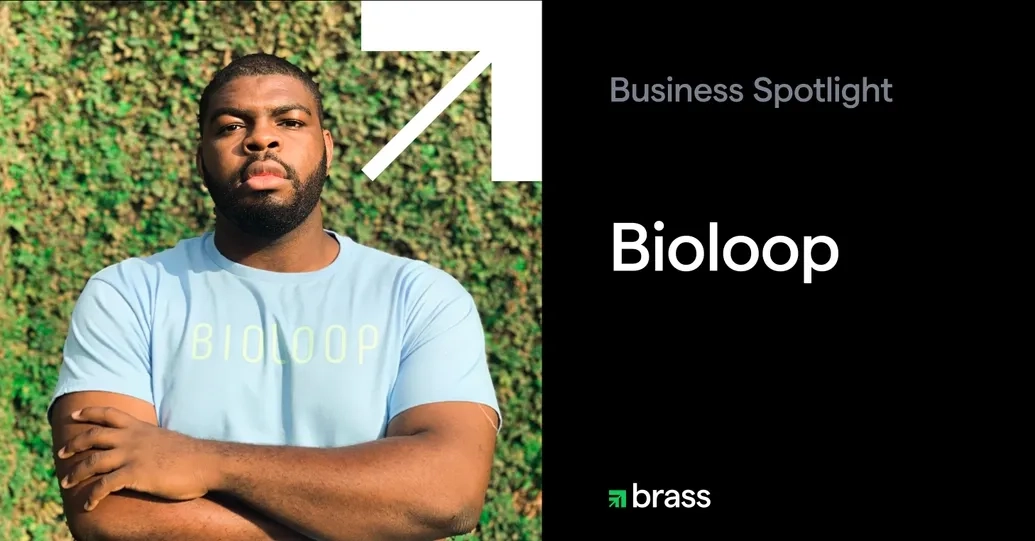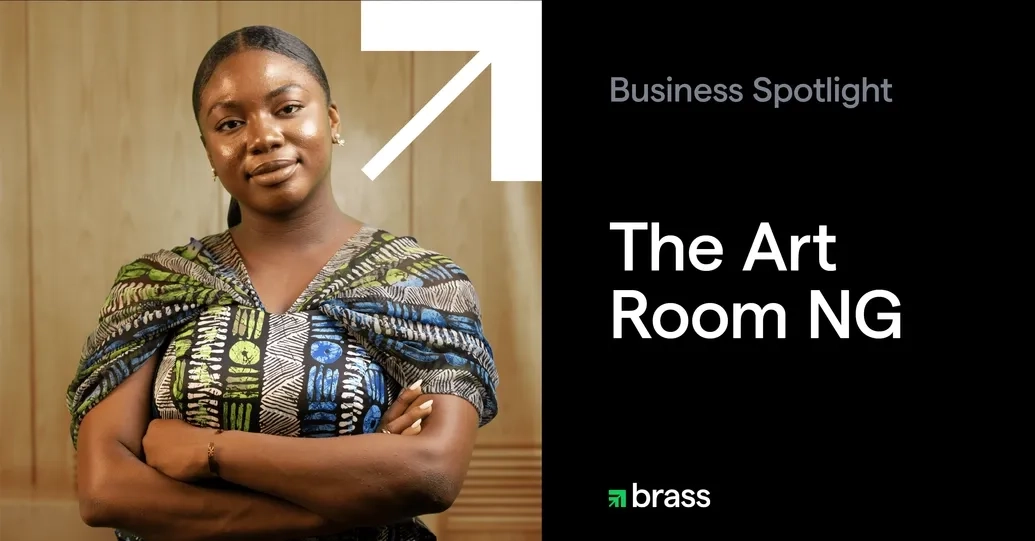Meet Bomi Fagbemi, Co-Founder of Bioloop.
In this month’s Business Spotlight, Bomi speaks on his journey building Bioloop, his vision for agriculture in Nigeria, and how his community has helped keep the dream alive.

It all started with an aspiration to change the efficiency of processes in the agricultural sector. Working in Agriculture Consulting, Bomi Fagbemi recognised that for a lot of livestock farmers, 70% of their costs come from animal feed - often imported and too expensive to be sustainable. Coincidentally, his co-founder had been researching a simple solution, native to Nigeria, that could produce revolutionary results - the Black Soldier Fly. Founded in 2021, Bomi Fagbemi and Ola Omotoso have built Bioloop as a bio-refinery based in Nigeria with big plans to revolutionise Nigeria’s food, waste and energy systems and ultimately, change the way we live.
How does Bioloop work?
Bioloop is a bio-refinery. We take organic waste from food factories, breweries and we process it by up-cycling it and adding value to waste. We do that using an insect, the black soldier fly.
What is it about the Black Soldier Fly that is so intriguing?
Well, for one, it’s native to Nigeria. Two, farming insects doesn’t take up much space. Three, there are very low emissions, no emissions honestly compared to farming livestock - cows or chickens. Four, the short lifecycle, so the turnover is very high. And five, they are very efficient at converting organic waste into their own body mass, which is important for what we do.
When and how did you get started?
Our pilot site has been operating since about April last year. How did we get started with that? That’s a loaded question (laughs). So well, I quit my job. I started looking for money. The money didn’t come when it was supposed to come, so I was jobless for a while. Then, we had to bootstrap, family and friends; we got some investments and built up sites from the ground up. We cleared the ground, had one employee and were all in the field, no shirt, digging holes, filling crates, everything. It was a nice experience, really in the trenches.
What is your favourite thing about the work you do?
My favourite thing is that moment when people understand what we do, and their faces light up a bit.
What challenges have you faced whilst running your business?
(sigh). Banking when we first started, legal stuff, staffing and having to set up a site from scratch [in a partially rural area], it’s been difficult. I can talk about the challenges all day, and they haven’t finished, especially when you’re doing something in the agriculture sector. The challenge is that we don’t really run out of challenges.
And how did you overcome them?
Perseverance, support, becoming more efficient, trying to shorten our supply chains [and] hiring locally.
What advice do you have for other businesses?
In this Nigeria, if you have a business and you’re making money month on month, year on year then you’re doing a good job. Clap for yourself, pat yourself on the back, take out some time for yourself because you deserve it!
I like that. Do you think you had to quit your job for this to be possible?
Yes. 100%. We’re in the field, it’s a production site so I had to be there and very hands on. Like I said, I was there when we had one employee, he went on leave so we had zero employees, so I had to be the only employee. It wasn’t possible to do it while having a 9-5. There was no time, no energy, it couldn’t have been done.
How would you describe your customers?
It’s a wide range, but typically, we want to help the everyday farmer. So the subsistence farmer to the huge food producer. We want to help everyone in this value chain because everybody has different needs, so we try to help people manage their waste and get low-cost alternatives to the smaller farmers.
Why is this work important to you?
It’s important for Nigeria to be able to provide enough food to feed its own people. I don’t think we’ll ever get anywhere as a country until we can do that. Secondly, I think we need to do it in a sustainable way, given the climate crisis we are currently in.
What’s the biggest contributor to your businesses’ success so far?
I’d have to say a good amount of it is luck and the support of friends and family; they make it pretty difficult to give up, honestly. I think that’s the biggest thing.
What’s the future for your business? Where do you see yourself ten years from now?
In the future, we want to be the biggest bio-refinery in Nigeria. We want to be able to fully revolutionise how farming works here and how people live. We want to be able to transform a community’s waste into their food and into their energy, which really transforms the lives of the everyday Nigerian.
Learn more about Bioloop here and follow their journey on Instagram.



